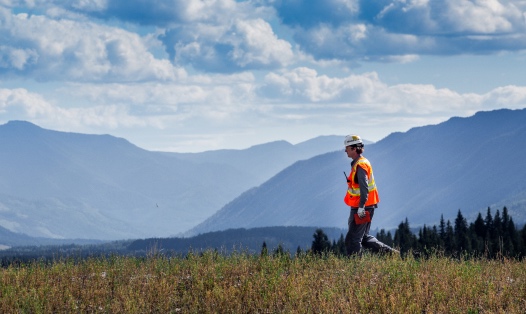Managing our supply chain requires an understanding of a broad scope of issues, including how materials are produced, packaged, moved, stored, used and recycled. The mid-point of the chain, movement of our product from our operations to customers, is a critical element of our work in materials stewardship.
Managing our supply chain requires an understanding of a broad scope of issues, including how materials are produced, packaged, moved, stored, used and recycled. The mid-point of the chain, movement of our product from our operations to customers, is a critical element of our work in materials stewardship as it often involves large volumes and the need to partner with third-party suppliers.
In order to select companies that will handle our products safely and who share our commitment to responsible supply chain management, we conduct risk-based screening of our larger transportation providers. For example, in the case of shipping companies, we review the size and age of their vessel fleet, the country under which they operate and their safety records.
But our work with shipping companies extends far beyond risk management. Consider our Red Dog Operations for example where we shipped 551,300 tonnes of zinc and 96,700 tonnes of lead contained in concentrate in 2013. Shipping those large quantities required expert handling through 24 vessels – a task made all the more daunting when you consider the mine’s ice-shortened shipping season lasted only 114 days. While 2013 was an exceptional year weather wise, in previous years we have lost over 50 working days due to weather.
To meet these challenges, we work closely with one of Canada’s largest ocean-going dry-bulk shipping companies, Fednav, as our ocean contract partner of Red Dog’s concentrate. In addition, we work with a company called Foss Maritime, who operates barges that are loaded shoreside by Red Dog and then discharged to Fednav’s ocean vessel at anchor 3-5 miles offshore. We’re in constant contact with both Fednav and Foss to monitor the weather and ocean swell conditions to determine whether shipping operations can proceed on any given day. In addition, at the beginning of each shipping season, Fednav holds vessels off-shore awaiting confirmation from the Iñupiat Subsistence Committee that their annual hunting season has ended. We won’t send a single ship into port until that confirmation has been received.
We also work with Fednav to meet, and in some cases exceed, standards set by regulatory bodies. This includes recent and upcoming changes to shipping laws by the International Maritime Organization aimed at improving vessel safety and environmental standards.
Working with our suppliers to responsibly manage our supply chain, this is yet another example of our continued work in materials stewardship.

